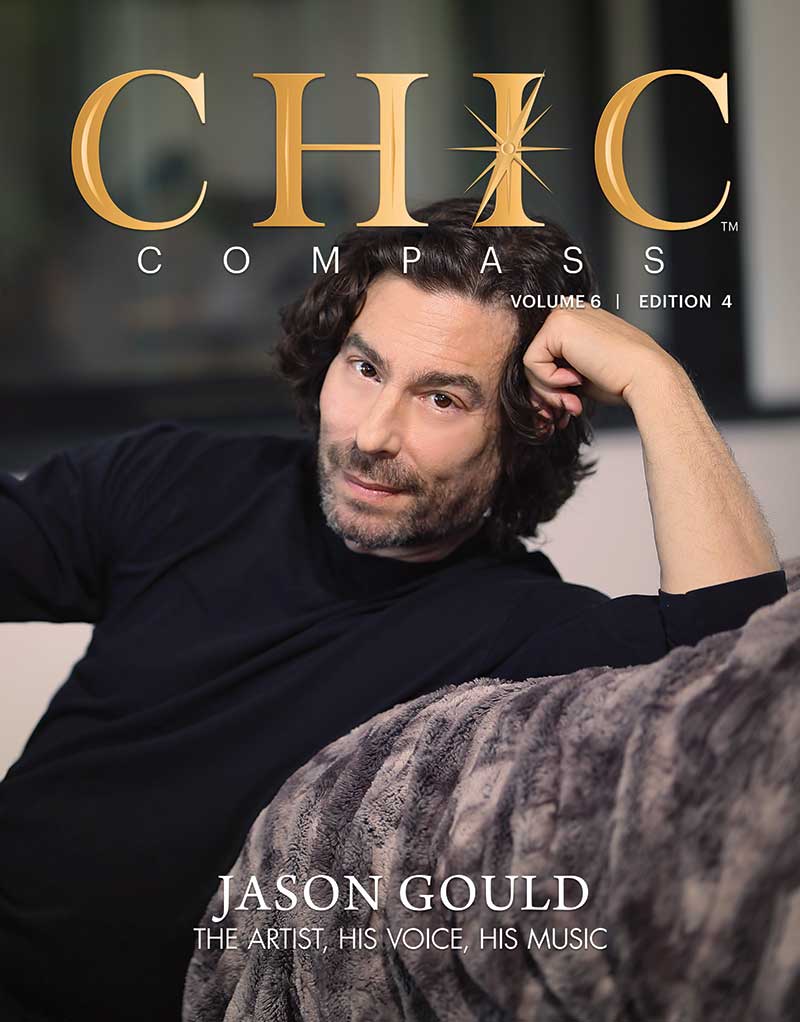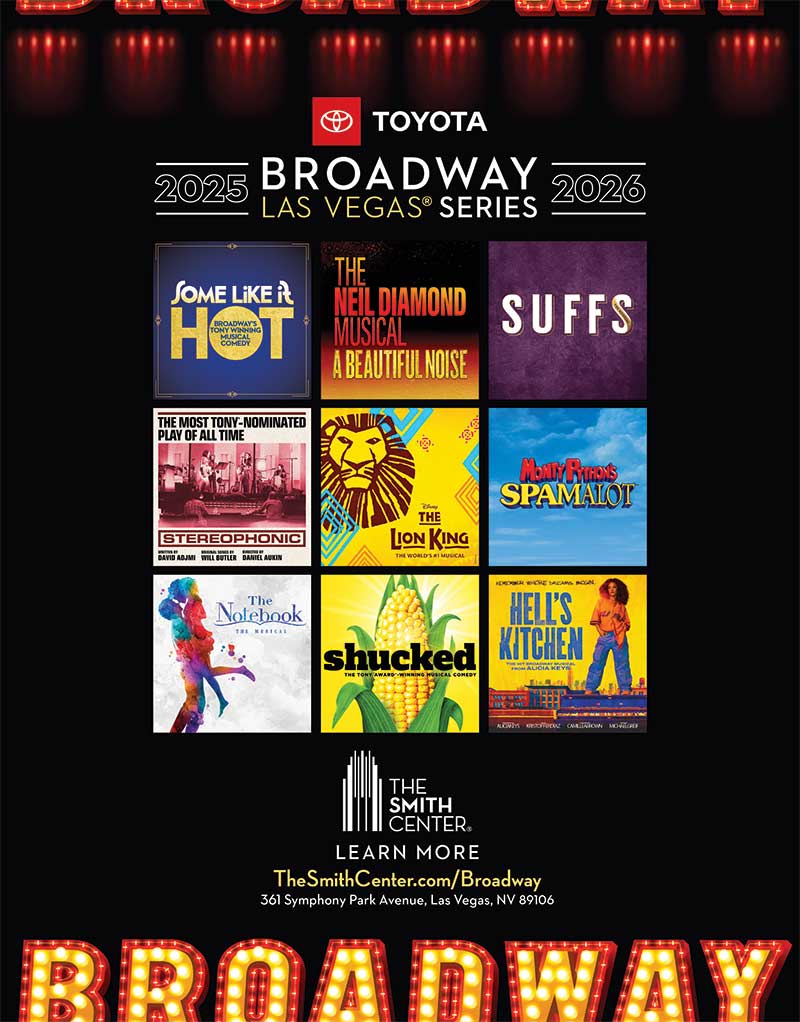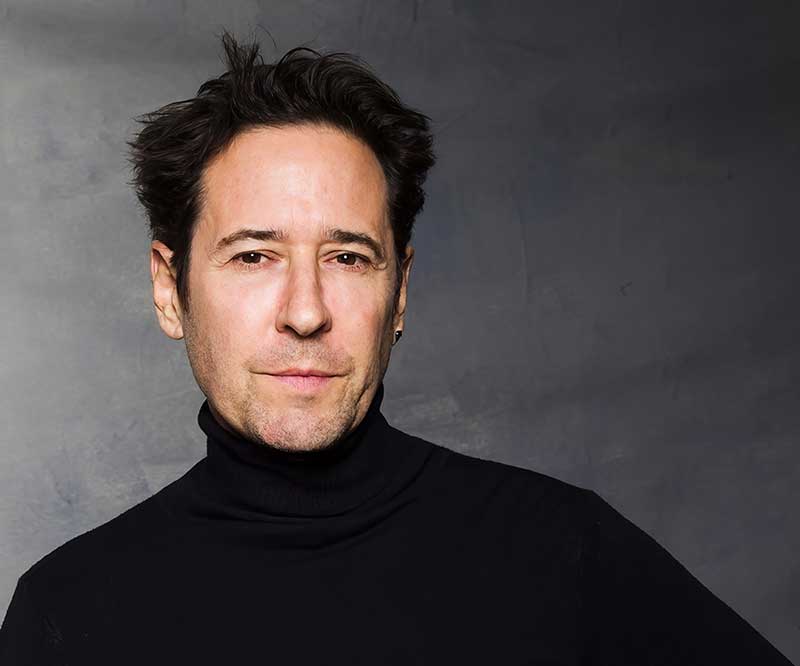
Photo of Rob Morrow courtesy of Rob Morrow
Rob Morrow
The Quintessential Storyteller
BY SHERYL ARONSON
Rob Morrow, a Golden Globe and Emmy Award-nominated actor, knew early on that his calling was to be an actor. At 18, he left high school to pursue his dream and spent 10 years in the New York City theater world, diligently soaking up knowledge—whether working as an actor or a crew member—to fine-tune his craft.
Morrow commented, “I was there to learn, and no job was beneath me.”
His prolific resume includes television, film and theater, spanning 44 years in show business. He’s best known for the hit show “Northern Exposure,” which awarded him three Golden Globes and two Emmy nominations for playing the iconic role of Dr. Joel Fleischman. “Numb3rs,” “Billions,” “Entourage,” “American Crime Story: The People v. O.J. Simpson” and “Designated Survivor,” and films including “Mother,” “Flint,” “The Bucket List” and the Academy Award-nominated “Quiz Show” also revealed the multifaceted components of his talent.
In 2019, I discovered another creative side of Morrow—he was actively pursuing a career as a musician and songwriter, gigging around Los Angeles, fronting the Rob Morrow band and performing in venues such as the Viper Room, Bogies and Molly Malone’s.
Storytelling is the quintessential motivation behind Morrow’s artistry. When asked what the creative differences are between being an actor and director as compared to being a musician, he replied: “Both art forms are storytelling, and understanding the parameters of storytelling is essential. The other important component is expression. I must express myself. It’s part of my nature.”
This past summer, audiences in Los Angeles saw Morrow’s artistry up close when he played Holocaust survivor Isaac Geldhart, the lead role in the Ruskin Group Theatre production of “The Substance of Fire,” which also co-starred the beautiful and talented Marcia Cross.
Morrow’s history with the play dates to his early acting career in New York. He was one of the founding members of the Naked Angels theater company, where “The Substance of Fire” was first performed as a one-act play. He landed the role of Aaron Geldhart, Isaac’s son. The play was developed as a two-act play and became a film starring Ron Rifkin.
Morrow then received the news that he had landed the role of Dr. Joel Fleischman in “Northern Exposure,” and the rest is history!
I talked with Morrow during the run of “The Substance of Fire” this past summer.
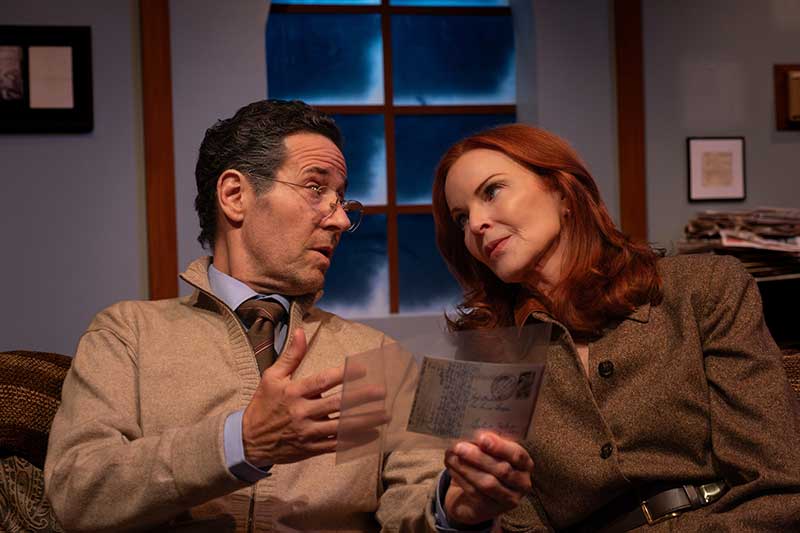
Rob Morrow (Isaac) and Marcia Cross (social worker) in “The Substance of Fire.”
Chic Compass: You have acted in numerous television shows and films. What drives you as an actor to take on different roles?
Rob Morrow: The fun for me is in the creation and execution. The performances are like a cherry on the cake, but the creative process and building the character get my attention.
Chic Compass: You played Richard N. Goodwin in the Academy Award-nominated film, “Quiz Show” directed by Robert Redford. What was your experience working with him?
Rob Morrow: It was like getting called up from the minor leagues to play in the All-Star game in the major leagues. Bob was someone whom I studied even before I knew I would be an actor. I was fascinated with him, as most people were. I watched him in movies and metabolized his stillness and gaze. I unconsciously instilled these characteristics when I became an actor. Then, finding myself working with him and being guided by him was a thrill. I felt a profound trust. Bob was generous and allowed me to express myself while guiding me. It was lovely to trust someone so much. We became friends for several years afterward. He was an important part of my life.
Chic Compass: You have played Jewish characters in some of your roles. Dr. Joel Fleischman (“Northern Exposure”) launched your career in the public’s eye. What significance, if any, does this have for you being of Jewish heritage?
Rob Morrow: I don’t practice Judaism but was bar mitzvahed. I’m mostly spiritual. I take great pride that Dr. Joel Fleischman was one of the first mainstream Jewish television protagonists. I’m honored to depict someone who has a strong relationship with Judaism – the Jews need all the help they can get. (We both laugh) they’ve been ostracized, and they’ve been through the horrors of the concentration camps in World War II. I try to spread the good word through my Jewish characters or spread understanding through those characters.
Chic Compass: In “The Substance of Fire,” you played Isaac Geldhart, a Holocaust survivor and successful publisher at odds with his adult children. Isaac was carrying a heavy burden being a survivor, and his inability to deal with his emotions caused a deep divide in the family. He was driven by what he lost and what he observed as a little boy surviving these atrocities.
Rob Morrow: Isaac was scarred and a survivor. He wasn’t in the camps but lost all his family. He carried survivor’s guilt. He came to America, reinvented himself and created a big life as a wealthy publisher. He only wanted to publish books that had value and were edifying and refused to modernize the content of the books. He feared what could happen if one let his guard down. It was 1986, so his kids couldn’t relate to what happened in Nazi Germany. It became a family battle to update the book content or go under as a business. The children had the power to override me, which became the play’s main thrust.
Chic Compass: In Act II, you receive a visit from a social worker, Marge Hackett, played by Marcia Cross. What was your experience working with her?
Rob Morrow: I loved working with Marcia. I’ve known her socially forever, but it was the first time we worked together. I adore her as a person and as an artist. Marcia’s character talked to Isaac about her heartbreaks. By being vulnerable with him, she began to break down his walls. He opened up to her more than he had with anyone. There’s a catharsis because of it. My favorite kind of stories take the character to the point of change. At the end of the play, Isaac lets down his guard, opens himself up to his family, and stops living as a reaction to the traumatic events of his past. I love this kind of writing. It reflects what one of my teachers said, “Art is the equipment for living.” It shows how we all must change. I used to fight with them on “Northern Exposure” because the original people who created the show never wanted Joel to change. Fortunately, they left, and other writers came on and were more open to my thinking.
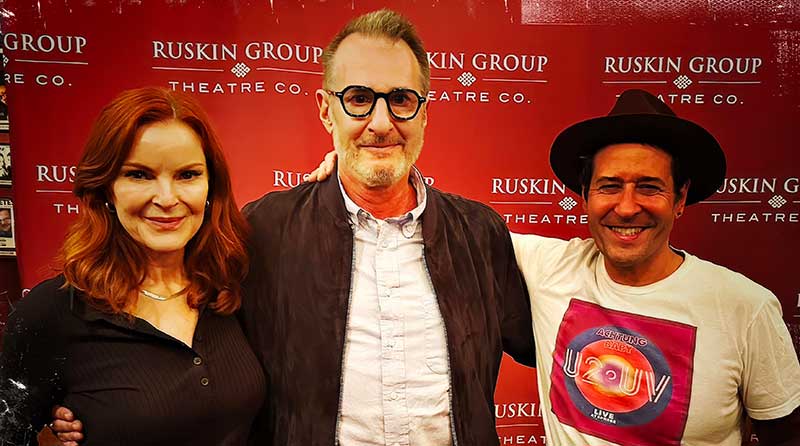
Marcia Cross, Rob Morrow, Jon Robin Baitz at “The Subsance of Fire.”
Chic Compass: Many of your actor friends have come to see “The Substance of Fire” at the Ruskin Group Theatre.
Rob Morrow: The audience has been fabulous. Playwright Jon Robin Baitz and my other actor friends, including Steve Weber, Ed O’Neill, Michael Nouri, Eric McCormack, Bryan Cranston, Jason Alexander, Richard Kind, Kevin Pollak and Spencer Garrett, visited. It’s nice when people you admire appreciate what you’re doing. It’s a confirmation, a celebration of camaraderie and support. I have a lot of friends in the business. We support each other’s work.
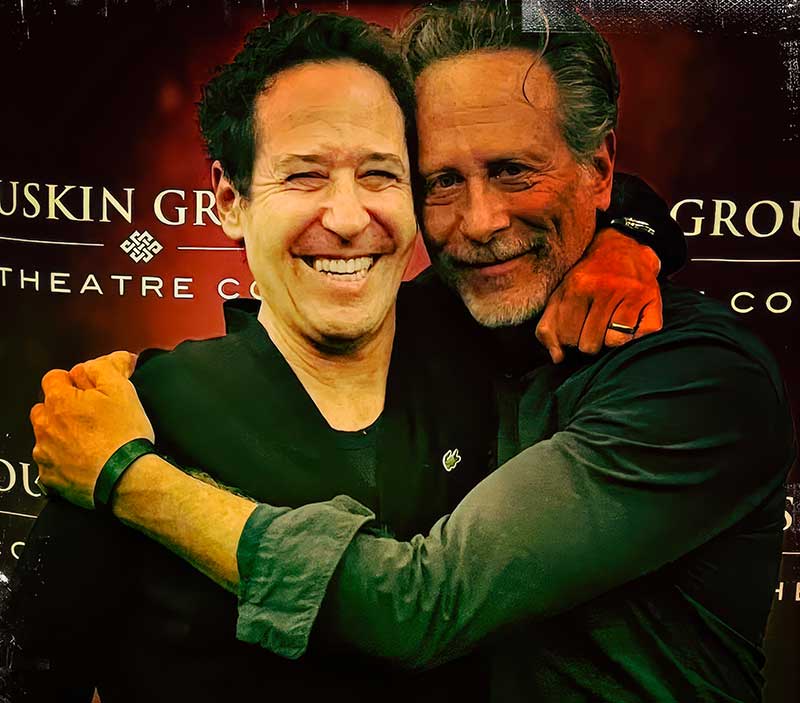
Rob Morrow with Steve Weber at “The Subsance of Fire.”
Chic Compass: Talk about the Ruskin Group Theatre.
Rob Morrow: I went to high school with John Ruskin. He contacted me about 10 years ago and asked me to teach master classes. I’ve been teaching a couple of classes every year since that time. In 2019, my wife saw that the playhouse was doing “Death of a Salesman,” and it was perfect timing. I was hunting around to act in something different and challenging. I called John, and he asked me if I wanted to play Willy Loman. It’s rare to work on a masterpiece. A lot of the work I do doesn’t work – what I do is work on things that don’t work, trying to figure out how to do it or change it. You don’t have to spend any bandwidth when you have a masterpiece. I don’t have to question one thing; I just fulfill the role. My experience was great because I concentrated on creating, not fixing. The Ruskin Group Theatre is moving two doors down to a bigger space. The old space is difficult to stage a play. It’s intimate and creates a hybrid of film and stage acting because you don’t have to project. You can just present your lines like we do in front of a camera. Yet, it’s a live performance. A friend of mine, who’s a director of photography, told me he could see my micro-expressions.
Chic Compass: Theater in Los Angeles is exciting and wonderful, and the Ruskin Group Theatre is a great space to highlight these master plays.
Rob Morrow: The new space will have two stages. It has a community vibe and is my fourth artistic home.
Chic Compass: Let’s switch over and talk about your music career. When beginning your music career, you would go into a small club and play a set to improve your chops and learn.
Rob Morrow: I wasn’t very good at first, which was hard because people recognized me as an actor. Music is the most direct storytelling. It hits you viscerally. I took some slings and arrows, went to clubs and asked to go on at 7 p.m. when no one would be there. I videoed myself to learn how to get better. Meanwhile, I wrote songs and hooked up with Carlos Calvo; we wrote a ton of music together. We also formed a band. He was a mentor to me. Eventually, I got good. I love playing.
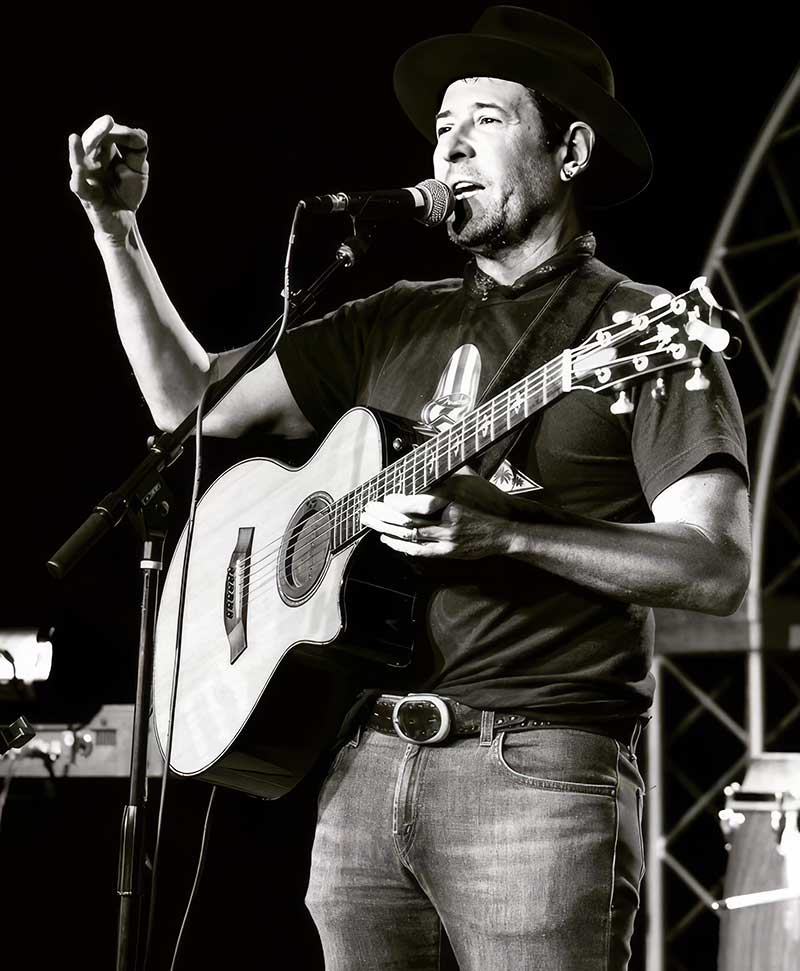
Photo of Rob Morrow courtesy of Rob Morrow
Chic Compass: Do you have any music projects coming up?
Rob Morrow: I’m getting ready to go out with this one-man band. I built a pedal board to play percussion and have vocal harmonies and looping. I have new music that I’m playing. In the next six to eight months, I plan on performing as a musician. FYI, I did a song with Lisa Loeb called “Shake Things Up,” which has gotten a lot of airplay.
Chic Compass: What other projects are you working on?
Rob Morrow: I did a miniseries called “The Gray House,” coming out in early 2025. Kevin Costner and Morgan Freeman produced it. It’s a big, epic Civil War drama directed by Roland Joffé. I’ve worked with him three times now.
Chic Compass: Is there anything else you want to say about your career?
Rob Morrow: I feel lucky to make a living and have a creative life telling stories. I hope that the world will be a little better through my work and the sum of my existence. These stories changed me and made me who I am, and as an actor, producer, director and songwriter, I can only hope to do the same for others.
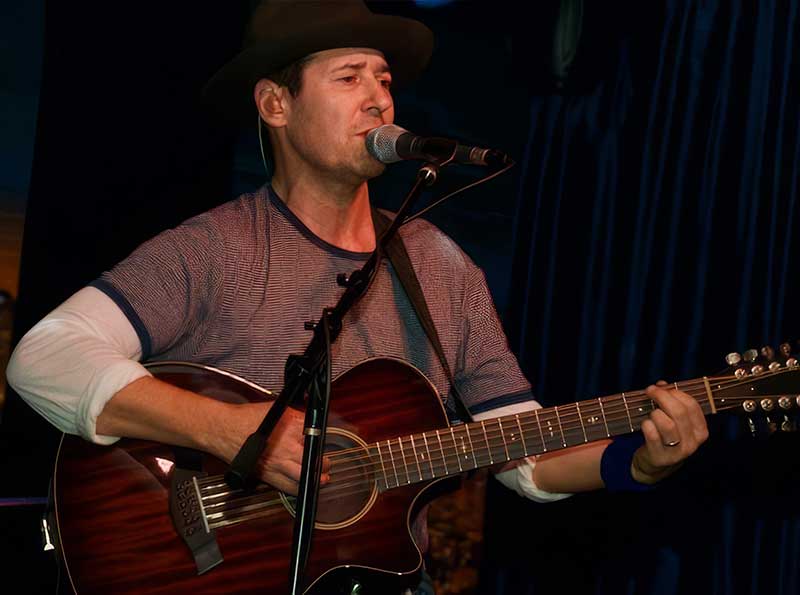
Photo of Rob Morrow at Bogies nightclub by Sheryl Aronson.

